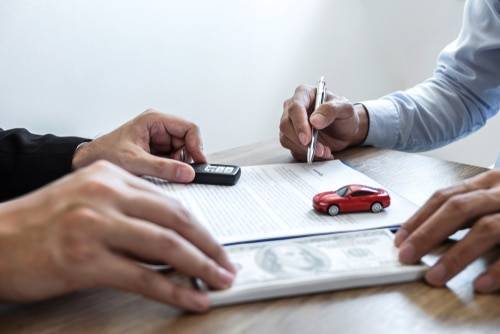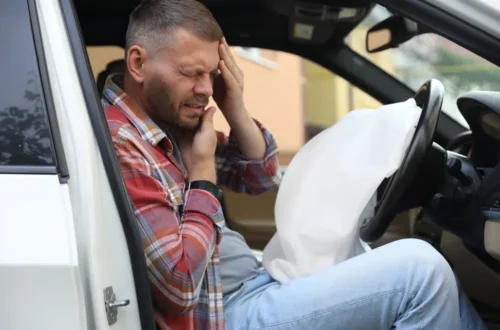Introduction
If you drive in Florida, you are legally required to carry certain types of auto insurance to stay on the right side of the law. Florida follows a no-fault insurance system, meaning that after most car accidents, your own insurance pays for your medical expenses and certain other losses—no matter who caused the crash.
Understanding these requirements is not only important for legal compliance, but it also protects you from large out-of-pocket expenses after an accident. The two types of required insurance coverage under Florida’s no-fault law are:
-
Personal Injury Protection (PIP) Coverage
-
Property Damage Liability (PDL) Coverage
Let’s break down exactly what Florida’s no-fault law means, how these coverages work, the minimum coverage limits, and why carrying only the legal minimum might not be enough for full protection.
What Is Florida’s No-Fault Law?
Florida’s no-fault law (Florida Statutes §627.736) requires all vehicle owners with four or more wheels to carry PIP and PDL insurance. This ensures that accident victims receive prompt medical treatment and compensation, regardless of who caused the accident.
Key points of the law:
-
Every registered motor vehicle must have both PIP and PDL coverage.
-
Drivers must maintain minimum coverage to legally operate their vehicles.
-
Noncompliance can result in fines, license suspension, and reinstatement fees.
Why Are PIP and PDL Required in Florida?
The main reason is to reduce the number of personal injury lawsuits from car accidents. Instead of suing the at-fault driver for medical bills, each driver first uses their own PIP insurance to cover injuries. PDL ensures that drivers can pay for property damage they cause, even if they can’t afford it out of pocket.
Personal Injury Protection (PIP) Coverage
What Does PIP Cover in Florida?
PIP covers medical expenses, lost wages, and death benefits after a car accident, regardless of fault.
Coverage details:
-
Medical Expenses: Up to 80% of reasonable medical costs.
-
Lost Wages: Up to 60% of lost income if injuries prevent you from working.
-
Death Benefits: Up to $5,000 per person for funeral costs.
Minimum PIP Coverage Limit in Florida
Florida law requires at least $10,000 in PIP coverage per person. If your injuries exceed this amount, you will have to pay the remainder yourself or through other insurance policies.
Example:
-
Accident medical bill: $20,000
-
PIP coverage: $10,000 limit
-
Remaining cost: $10,000 (paid by health insurance or out of pocket)
Advantages of Having PIP Coverage
-
Quick Payment: You don’t have to wait for a fault determination.
-
Broad Application: Covers you as a driver, passenger, pedestrian, or bicyclist.
-
Peace of Mind: Helps avoid financial strain after an accident.
Property Damage Liability (PDL) Coverage
What Does PDL Cover?
PDL pays for damage your vehicle causes to someone else’s property. This typically means repairs to another person’s car but can also include damage to fences, buildings, or other structures.
Minimum PDL Coverage Limit in Florida
You must carry at least $10,000 in PDL coverage.
Example:
-
You cause an accident, damaging another driver’s car.
-
Repair cost: $8,000
-
Your PDL pays the full repair bill (up to $10,000).
Why You Might Need More Than the Minimum PDL
While $10,000 is the legal minimum, serious accidents can cause property damage costs far higher than that. If damages exceed your limit, you must pay the difference yourself.
Tip: Many experts recommend $50,000–$100,000 PDL coverage for better protection.
Additional Optional Coverages in Florida
While PIP and PDL are the only mandatory coverages, other policies can protect you from significant financial losses:
-
Bodily Injury Liability (BIL): Pays for injuries you cause to others.
-
Collision Coverage: Pays for your car’s repairs after a crash.
-
Comprehensive Coverage: Covers theft, vandalism, and weather damage.
-
Uninsured/Underinsured Motorist Coverage: Protects you if the other driver has little or no insurance.
Consequences of Not Carrying Required Coverage
Driving without the minimum PIP and PDL coverage can result in:
-
License Suspension: Until you provide proof of insurance.
-
Fines and Fees: Including reinstatement costs.
-
Financial Liability: Paying out of pocket for damages and injuries.
How to Maintain Compliance with Florida’s No-Fault Law
-
Always renew your policy before expiration.
-
Keep proof of insurance in your vehicle.
-
Review your coverage limits annually.
-
Compare quotes to find affordable, comprehensive protection.
Final Thoughts
Under Florida’s no-fault law, every driver must carry Personal Injury Protection (PIP) and Property Damage Liability (PDL) coverage. PIP ensures quick payment for medical costs and lost wages, while PDL covers damage you cause to others’ property.
Carrying only the minimum may keep you legal, but it might not fully protect you financially in a serious accident. Many drivers choose to increase their limits and add optional coverage for better protection.
Tip: Always shop around and compare insurance providers to ensure you get the best coverage for your needs and budget.







2 Comments on “What Are the Two Types of Required Insurance Coverage to Comply With Florida’s No-Fault Law?”